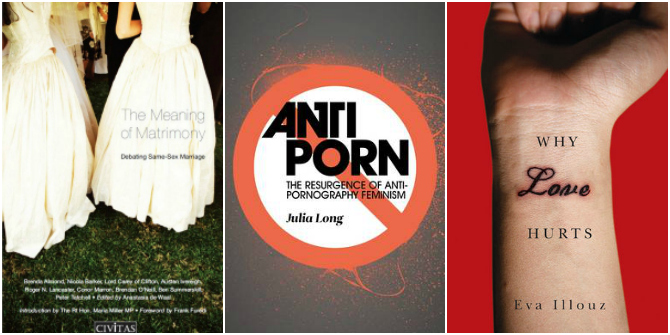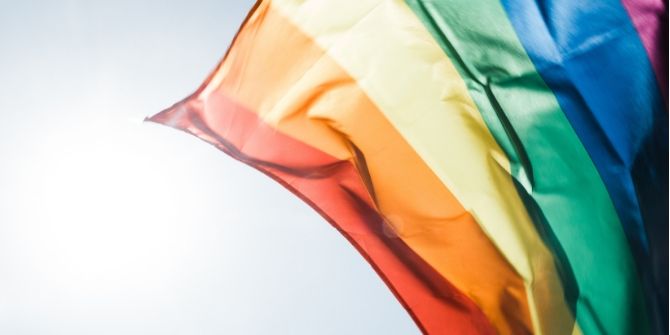 Image Credit: (Peter Hershey Unsplash)
Image Credit: (Peter Hershey Unsplash)
17 May is International Day Against Homophobia, Transphobia and Biphobia (#IDAHOBIT). Beginning in 2004, 17 May is now celebrated in more than 130 countries and is a moment to unite in support of the recognition of human rights for all, irrespective of sexual orientation, gender identity or expression, and to celebrate gender and sexual diversity.
Spectrum is LSE’s LGBT+ staff network and is here to represent and support staff who are lesbian, gay, bi, trans and of any sexual orientation and gender identity. International Day Against Homophobia, Transphobia and Biphobia is a hugely important opportunity to keep up momentum for positive change. To mark #IDAHOBIT2019, members of Spectrum have recommended 10 books to engage, move and inspire.
How to Survive a Plague: The Story of How Activists and Scientists Tamed AIDS. David France. 2017.
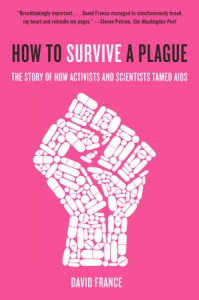 How to Survive a Plague is great in terms of shining a light on a particular period of recent history, but it also honours the activists who achieved extraordinary things. This is a detailed exploration of the HIV crisis through the eyes of the campaigners who worked furiously to gain an understanding of the inner workings of the pharmaceutical industry and immunology to help save their community. A fascinating and necessary read for anyone interested in LGBT+ history.
How to Survive a Plague is great in terms of shining a light on a particular period of recent history, but it also honours the activists who achieved extraordinary things. This is a detailed exploration of the HIV crisis through the eyes of the campaigners who worked furiously to gain an understanding of the inner workings of the pharmaceutical industry and immunology to help save their community. A fascinating and necessary read for anyone interested in LGBT+ history.
Recommended by Paul Glynn, Counselling Service Manager.
Rubyfruit Jungle. Rita Mae Brown. 1973.
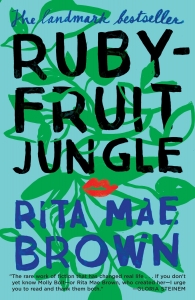 Published in 1973, Rubyfruit Jungle was remarkable in its day for its explicit portrayal of lesbianism. It’s a funny and fast-paced story about a strong young woman who also deals with issues around social injustice, sexism and homophobia. Most of all, I loved it for reminding me of how important it is to look after oneself.
Published in 1973, Rubyfruit Jungle was remarkable in its day for its explicit portrayal of lesbianism. It’s a funny and fast-paced story about a strong young woman who also deals with issues around social injustice, sexism and homophobia. Most of all, I loved it for reminding me of how important it is to look after oneself.
Recommended by Sonia Gomes, Academic Support Librarian.
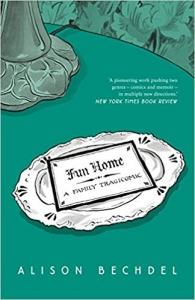 Fun Home. Alison Bechdel. 2006.
Fun Home. Alison Bechdel. 2006.
I recommend Fun Home by Alison Bechdel, which combines the genres of memoirs and comics, as it’s an easily digestible yet emotional read which I think many people can relate to. It deals with the complexity of family life along with the confusion of understanding your sexuality even when those around you do not. I found it particularly interesting as it does not shy away from addressing the harm, both physically and mentally, that unfortunately comes with identifying as LGBT+ in a society which is not always tolerant. It’s got a great gothic art style and has also been adapted into an amazing musical which I would recommend – it is a tearjerker though, so don’t say I didn’t warn you.
Recommended by Joe O’Brien, Employer Enquiries and Data Coordinator.
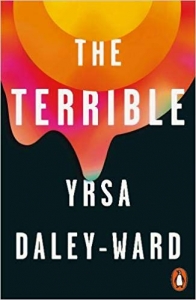 The Terrible. Yrsa Daley-Ward. 2018.
The Terrible. Yrsa Daley-Ward. 2018.
Yrsa Daley-Ward’s poetry is accessible. You don’t have to ‘know’ about poetry to appreciate her work. Daley-Ward’s writing is raw, honest, intense and beautiful. She writes from a place of authenticity and lived experience; not everybody will enjoy her poetry because she raises uncomfortable truths, both her own and sometimes directed at her audience. You don’t have to like Yrsa Daley Ward’s work, but her words will have some impact on you.
Recommended by Adeola Akande, Centre Manager.
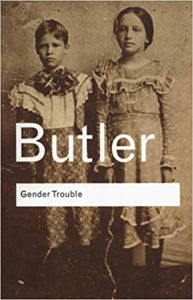 Gender Trouble: Feminism and the Subversion of Identity. Judith Butler. 1990.
Gender Trouble: Feminism and the Subversion of Identity. Judith Butler. 1990.
Gender Trouble is an eye-opening read that subverts traditional conceptions of gender, with a core argument that was innovative and compelling for its time, and still holds an important place in discussions of gender today. Butler masterfully critiques discussions of gender identity by political philosophers before her, including Michel Foucault and Simone de Beauvoir, creating a thesis that has had a huge impact on queer culture and queer theory. A must-read, especially with the current hostile climate towards the transgender community.
Recommended by Emily Webster, Entrepreneurship Coordinator.
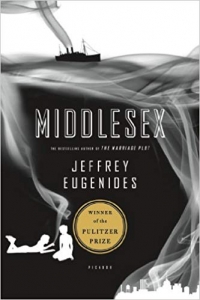 Middlesex. Jeffrey Eugenides. 2002.
Middlesex. Jeffrey Eugenides. 2002.
I’d like to recommend Middlesex by Jeffrey Eugenides. The story is narrated by Cal, an intersex Greek-American who tells her/his personal and family’s story spanning several generations as they migrate from south-east Europe to Detroit, and Cal’s eventual move to San Francisco and coming of age. The book explores gender identity and sexology, and Eugenides’s use of irony and humour helps to convey a story that could have been a tragedy in other hands. With today’s more mainstream acceptance of gender fluidity, and a greater willingness to challenge ideas of gender and sexuality, Middlesex (written in 2002) is both timely and a modern classic.
Recommended by Carl-Ludwig Campbell, Department Manager.
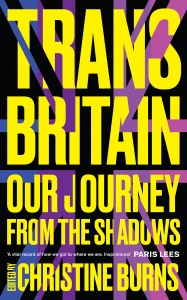 Trans Britain: Our Journey from the Shadows. Christine Burns (ed.). 2018.
Trans Britain: Our Journey from the Shadows. Christine Burns (ed.). 2018.
I borrowed a copy of Trans Britain from LSE Library after being lucky enough to meet the legendary Christine Burns at an event organised by LSE Spectrum and the Library. Christine Burns has campaigned tirelessly for the civil rights of transgender people, and has edited this very accessible collection of essays. Together these essays chart some of the landmark events that have shaped the transgender community over the last 50 years or so, told through the lived experiences of trans people and allies. It’s an extremely powerful and moving book, and I learned so much reading it. Anyone interested in what it means to be a person in the world we live in should view this book as essential reading. (I promise I’ve just put it back on the shelf too, at HQ77.95.G7 T77 for any LSE Library readers!)
Recommended by Daniel Payne, Curator for Politics and International Relations.
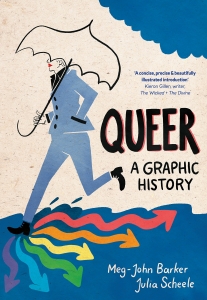 Queer: A Graphic History. Meg-John Barker and Julia Scheele. 2016.
Queer: A Graphic History. Meg-John Barker and Julia Scheele. 2016.
Queer: A Graphic History is clever, grounded in theory but witty and accessible, inviting readers to ‘try thinking queerly’ and to ‘pull out what seems most useful from queer theory for our everyday lives, relationships and communities’.
Recommended by Brigid McClure, Head of Directorate & Strategy Delivery.
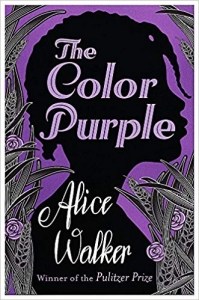 The Color Purple. Alice Walker. 1982.
The Color Purple. Alice Walker. 1982.
This book changed my life when I read it aged 13 – I saw the world through someone else’s eyes and learnt about the love that can exist between two women, as well as teaching me about the existence of bisexuality. The resilience of the main character through so much adversity and her capacity for love is very empowering and inspirational. The Color Purple won the Pulitzer Prize for Fiction in 1983, making Walker the first black woman to win the prize.
Recommended by Laura Swiszczowski, Equity, Diversity and Inclusion Manager.
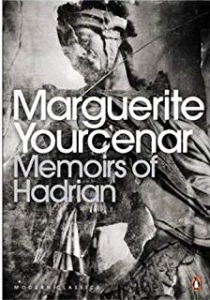 Memoirs of Hadrian. Marguerite Yourcenar. 1951.
Memoirs of Hadrian. Marguerite Yourcenar. 1951.
The book is a fictional memoir of Roman emperor Hadrian, written as a letter, a reflection on the emperor’s public and private life. The memories of the military triumphs and the long travels through to the remote provinces of the empire are a splendid description of the political and historical period, and the account of Hadrian’s passion for the young lover, Antinoo, is an intimate portrait of eternal love.
Recommended by Roberto del Monte, Front of House Manager.
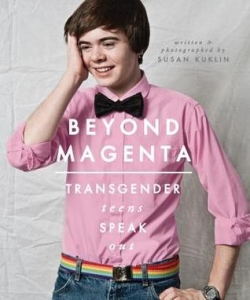 Beyond Magenta. Susan Kuklin. 2016.
Beyond Magenta. Susan Kuklin. 2016.
To mark # IDAHOBIT2019, why not read a banned book? Censorship can and still does continue. Each year the American Library Association provides a list of books that have been targeted for removal from libraries. Historically LGBT+ themed books have dominated.
Beyond Magenta is a collection of six life narratives from transgender teenagers. Research from Stonewall has found that LGBT+ youth lack positive role models in school, and this is therefore a much-needed resource for telling often hidden stories. However, personally I can recommend this book for its revelatory honesty. The interviewees are painfully moving about their experiences of transitioning, yet they are not idealised saints. We meet Christina as she is getting into a fight with girls who are mocking her on the subway and she admits at times to envy of others as ‘while everyone else my age is saving up for a car or a house, I’m saving up to look possible’. These people are not celebrities or martyrs, just ordinary; and the book underlines that no-one deserves to be discriminated against because of who they are.
If you would like to read another LGBT+ book (even a banned one!), do send a book recommendation to the LSE Library
Recommended by Heather Dawson, Academic Support Librarian.
This reading list was compiled by Joe O’Brien on behalf of LSE Spectrum.




